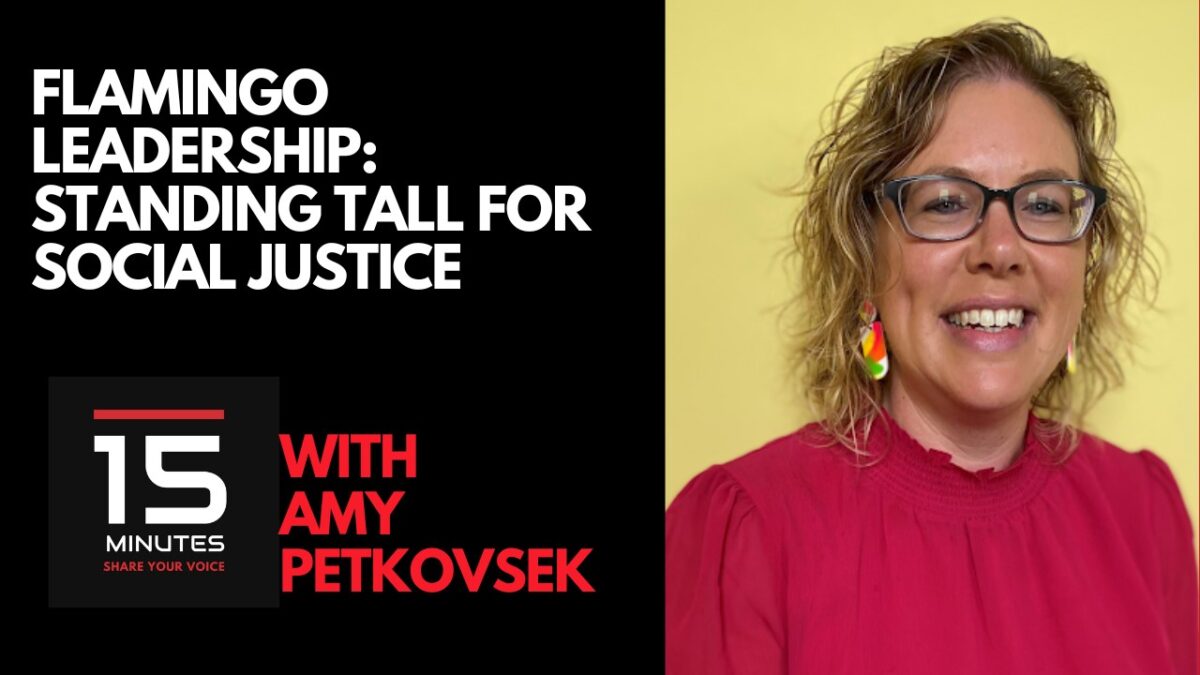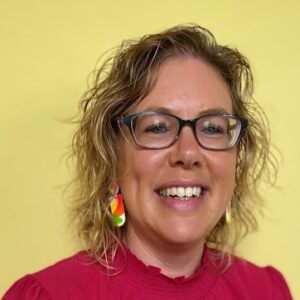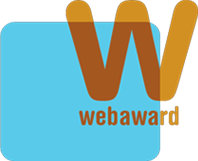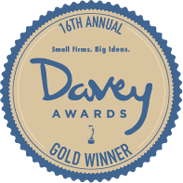
Flamingo Leadership: Standing Tall for Social Justice With Amy Petkovsek


Amy Petkovsek, Esq., is the Executive Director of the Community Law Center, Maryland’s only legal services organization dedicated solely to strengthening neighborhoods and the nonprofit sector. With prior roles at Maryland Legal Aid, including as Deputy Chief Counsel, she boasts an extensive background in child advocacy and appellate law. Committed to empowering local communities and innovative leadership, she serves on several committees and boards, such as the University of Maryland, Carey School of Law, and Movable Feast. Amy is known for her “Flamingo Leadership” concept, which emphasizes the importance of standing out and supporting teamwork within the legal field.
Here’s a glimpse of what you’ll learn:
- [2:41] Amy Petkovsek’s transformational journey toward a career in legal advocacy
- [6:20] The unique approach of the Community Law Center in representing groups over individuals
- [7:13] Amy’s innovative concept of “Flamingo Leadership” and its implications for effective mentorship
- [8:41] A challenging yet impactful project following Freddie Gray’s death
- [14:31] The digitalization of judicial proceedings and its potential to enhance legal accessibility
- [16:27] Current initiatives that resonate with Amy’s mission-driven work
In this episode…
Amy Petkovsek’s journey as an attorney began with a desire to help others, leading her to roles that focused on serving those in need, particularly children and underrepresented groups. But in a world where legal assistance can be hard to access, how did she tackle the challenges underserved communities face?
Legal representation not only solves individual matters but also shapes entire communities. Amy highlights how the rest of us might be unaware of the benefits derived from community law. She shares the impact of the Community Law Center’s legal advocacy and community engagement, from supporting vulnerable populations to advising neighborhoods on how to navigate school closures and property issues. Amy’s dedication shines through as she talks about the responsibility of lawyers toward societal betterment and how her career path led her to impactful, mission-driven work. She discusses the importance of legal advocates focusing on communal well-being rather than individual cases. With an eye on the future, Amy describes the potential for remote courts and other innovative solutions to provide wider access to the justice system.
In this episode of 15 minutes, Chad Franzen hosts Amy Petkovsek, the Executive Director of the Community Law Center, about harnessing the law to transform communities. Amy outlines the impact of effectively listening to and legally empowering neighborhoods, innovative projects like “tools to save our schools,” and the importance of lawyers in promoting social justice. She also shares insights into the evolving legal landscape, including remote court sessions and AI’s role in broadening legal access.
Resources mentioned in this episode:
- Chad Franzen on LinkedIn
- Bela Musits on LinkedIn
- Gladiator Law Marketing
- Amy Petkovsek on LinkedIn
- Community Law Center
- Moveable Feast
- Enoch Pratt Free Library
Quotable Moments:
- “I reread my law school application essay and thought, ‘My goodness, I’m doing exactly what I thought I wanted to do 20 years ago.’”
- “It’s community law, public interest law, community organizing; it falls under all of those brackets.”
- “You never see flamingos slouching. We talk a lot about standing up and owning your leadership style.”
- “Americans spend more money on Halloween costumes for their pet than they do on access to justice for people who can’t afford lawyers.”
- “Not all of us can help with a free record expungement or help a foster child. You need a law degree, so it already narrows the pool of who can help nationally.”
Action Steps:
- Volunteer pro bono legal services: This addresses the gap in access to legal services and utilizes unique attorney qualifications to help underrepresented communities.
- Create spaces to learn about local communities’ needs and challenges: It fosters a deeper understanding of community issues, paving the way for targeted and effective legal advocacy.
- Support the concept of remote legal proceedings to improve access to justice: This facilitates court access for individuals unable to manage the logistics and costs of in-person trials, which is particularly beneficial for low-income populations.
- Provide on-site legal assistance in community spaces: It enhances public legal education and makes legal support more accessible and less intimidating for community members in familiar environments.
- Embrace individuality and teamwork in leadership roles: This approach encourages legal professionals to advocate boldly while fostering collaborative efforts to address social injustices.
Sponsor for this episode…
This episode is brought to you by Gladiator Law Marketing, where we deliver tailor-made services to help you accomplish your objectives and maximize your growth potential.
To have a successful marketing campaign and make sure you’re getting the best ROI, your firm needs to have a better website and better content. At Gladiator Law Marketing, we use artificial intelligence, machine learning, and decades of experience to outperform the competition.
To learn more, go to gladiatorlawmarketing.com or schedule a free marketing consultation. You can also send an email to ad**@gl*******************.com .
Episode Transcript
Chad Franzen 0:01
You’re listening to 15 Minutes, where we feature community leaders sharing what the rest of us should know but likely don’t. Hi. Chad Franzen here, one of the hosts of Share Your Voice, where we talk with top notch law firms and lawyers about what it takes to grow a successful law practice. This episode is brought to you by gladiatorlawmarketing, delivering tailor-made services to help you accomplish your objectives and maximize your growth potential to have a successful marketing campaign and make sure you’re getting the best ROI your firm needs to have a better website and better content. Gladiatorlawmarketing uses artificial intelligence, machine learning and decades of experience to outperform the competition to learn more, go to gladiatorlawmarketing com, where you can schedule a free marketing consultation. My guest today is Amy Petkovsek Esquire, the Executive Director of the Community Law Center, overseeing legal advocacy efforts in Maryland communities. Amy’s extensive experience includes roles such as Deputy Chief Counsel at Maryland Legal Aid and directing initiatives like the community lawyering initiative and lawyer in the library programs with a background in child advocacy and appellate law. Amy brings a wealth of knowledge to her work. She is actively involved in various Bar Association committees and serves on the board of visitors for the University of Maryland, Kerry School of Law. Addition, additionally, Amy holds the position of Vice President on the board of directors for Movable Feast. Her dedication to mentorship and innovative leadership demonstrated through her is demonstrated through her concept of Flamingo leadership, and underscores her commitment to community engagement. In her spare time, she enjoys supporting her beloved Baltimore Orioles and exploring the outdoors. Hey, Amy, thanks so much for joining me today. How are you?
Amy Petkovsek 1:47
I’m great. Thank you for having me.
Chad Franzen 1:50
Hey, tell me, when did you know how and when you knew that you wanted to become an attorney?
Amy Petkovsek 1:57
I thought of it off and on as a child, but really my last year in college, I was a food marketing major, which, in case you’re wondering, is not the direct conduit to the legal field usually. So I had applied for a job at General Mills, and was disillusioned by the idea of of the corporate world being my future. So I took the LSAT, which is the entry test to be an attorney, on a whim, and was thought, you know, I really want to help people in this way and use my voice. And so I took the test and proceeded to apply to law schools back home in Maryland. And then that was the start.
Chad Franzen 2:34
Awesome. Very nice. So how did you how did your kind of take me through the beginning of your legal career? How did you break into the legal industry? Yeah,
Amy Petkovsek 2:41
Yeah, it really started when I went to law school. So I went to law school at the University of Maryland that’s now known as the Carey School of Law. And Maryland is a law school based in the public interest. That’s why I chose to go. There we have a Cardin requirement named after Senator Ben Cardin, and that is that every student at the law school, whether they want to go into contracts, you know, legislation, lobbying, transactions, they do a semester in the clinical program, working with those of low to middle income, helping them with criminal and civil issues. And so because the law school believed in that, I wanted to be a part of that. So I chose the school because of that, and then when I was there, I did I had four separate clinical experiences four semesters, so I really dove into that. I taught Street Law at a Baltimore city public school. I wrote a curriculum, I did some special education work for school families. I also was able to have some internships and externships, I would take the train down to DC, and I worked for the Public Defender Service of DC, representing kids inside juvenile detention facilities. So my experiences in law school really had the trajectory of my career start. You
Chad Franzen 3:56
know, I’ve talked to a lot of attorneys, and most of them tell me, the most satisfying thing about their job is that they get to, you know, help people, but you are particularly mission driven. Or it seems to me, Have you always been that way?
Amy Petkovsek 4:12
I have been so I wrote my essay on going to law school, you know, when I applied back in 2003 and I found it semi recently, when I moved and was cleaning things out, and I reread it, and thought, My goodness, I’m doing exactly what I 20 years ago. Thought that I wanted to do. So I was, I’ve always been service oriented. I did a lot of trips in college. I went to the Appalachian region of the United States and did actual building and construction service. And so always wanted a career that was 100% in that field. So I really have been driven in that way and been very honored to have a lot of different unique client experiences in the Public Interest Law community. As
Chad Franzen 4:52
I mentioned, you are the Executive Director of the Community Law Center. What inspired you to pursue you know, this part of your career. Legal Advocacy, particularly focusing on community engagement.
Amy Petkovsek 5:04
Yeah, so at Maryland legal aid, which was my previous job, I was there for 16 years. A lot of that time was spent representing children in foster care, but after that, I helped to found the community lawyering initiative at Legal Aid, and that’s when we placed lawyers in community spaces, libraries, public health centers, workforce development centers, schools, and that was I loved being in the community, and so when this opportunity arose at the Community Law Center to directly represent neighborhoods and groups of individuals, it really jumped out at me that you can use the law in very creative, innovative ways, and I was ready to make that leap. So at Maryland Legal Aid, they represent, generally, individuals, so an individual may come forward for a custody case or a child in foster care, or they’re a person who’s about to lose their home. Well, here at Community Law, we represent neighborhoods. If an entire neighborhood wants to acquire property to make it a rec center, we would help them do that. If a neighborhood’s facing a major challenge, we would help them develop litigation to represent the needs that they’re facing. So it was really exciting to take that leap.
Chad Franzen 6:20
How do you go about getting clients?
Amy Petkovsek 6:23
So we also help with the formation of small nonprofits and neighborhood groups. So we often get our clients initially. When they come to us to have bylaws, a board of directors, it might just be three people in, say, East Baltimore, and they want to form a group. So we help them with corporate governance of nonprofits. Let us help you form a 501, c3, and then they know about us because we’ve helped with the initial formation of an organization. So when that community has trouble a year to 10 years later, for example, they’re closing an elementary school in our community, and we won’t have a school anymore, and we want to fight this, they already know to come to us for legal representation. So we also do all of the typical outreach community fairs, but we often get our clients because they come to us initially to form their organization. So what
Chad Franzen 7:13
kind of classification of law would you say that is, I know, you know, I talk to people that are like in insurance law, the defendants they you know, defenders, what would you say? This is like community law.
Amy Petkovsek 7:23
It’s community law, public interest law, community organizing. It falls under all of those brackets when we apply for funding. I mean, we’re a very small nonprofit, so we will ask for funding in all of those groups. Yeah, it’s community led law. And we really we lean towards listening and learning from our communities. These are folks who have lived in these communities, and their grandparents have lived there, you know, for generation, and so they really know what’s best and what they want. And what we have are legal tools. We have law licenses, and so when we pair those things together, is when we’re able to help the communities elevate their needs.
Chad Franzen 7:58
Are there any common misconceptions that maybe new clients have about community. Let me come to you that might be a hard question for you to answer.
Amy Petkovsek 8:07
It’s not. The most common misconception is that we would represent individuals, so I will often redirect them to my counterparts at the job I used to have that does represent, you know, I’m about to be evicted. I’m an individual, and my landlord is about to evict me, or I’m an individual and I have credit card debt and I may need to declare bankruptcy, and need to know my options. Those are, it’s a misconception that we might do that we we don’t do individual representation in that way, and so we would just refer them to our colleagues.
Chad Franzen 8:38
Yeah, I mentioned in your intro also that you kind of demonstrate your mentorship and innovative leadership through Flamingo leadership. Can you tell me more about that?
Amy Petkovsek 8:47
Yeah, I often present locally and across the country on supervision, on leadership, and so I love to share a picture of a pink flamingo. I took it in Aruba, where the flamingos live, but there’s plenty of other images of flamingos here in Baltimore, especially in the community where I live in Hamden. It’s sort of a Baltimore thing that we’re known for. But the Flamingo is bright, often stands on one foot, stands tall and stands out, isn’t you know, you never see the flamingos slouching. So we talk a lot in my supervision and mentorship, chat about standing up and owning your leadership style, and how everyone’s style is different, but you want to own your style, and then you want to know when to lean on others, so flamingos will come and block. And so we talk about when, when do you want to lean on others? When do you mentor others? And just sort of use that image as an analogy.
Chad Franzen 9:42
Can you tell me about a particular challenge that you have faced in your legal career and kind of how you overcame it?
Amy Petkovsek 9:55
Sure, the challenge is one that we’re working on right now, but. We haven’t overcome it yet, so with some clients. So I would say that the challenge that I would come to mind is after Freddie Gray was murdered by the police in Baltimore City, everyone that I worked with wanted to help much like many others, but there was a definite realization that the West Baltimore community where Freddie Gray lived, did not need people descending all at once and then leaving three months later, which often happens when tragedies occur. And so we wanted to be intentional, and so we worked with the Enoch Pratt library system to develop what started as community listening session. So we went to the library in West Baltimore, across from the CVS that had been on the news internationally, that had been burned down, and we just had a series that summer of listening sessions with the community to say, how could we as lawyers, help you? And really left it very broad. And we heard about housing, and we heard about financial concerns, but the one thing we heard repetitively was that we can’t get jobs because of items on our criminal record, items that we already either served time for or never did because they weren’t fully prosecuted, but they were charges, and so they are. We have long lists of records, things like loitering, but when your criminal record is pulled and you have 25 to 90 charges, it doesn’t it doesn’t look appealing to an employer. So we then, after those listening sessions, started a lawyer in the library program, just at that one branch, bringing in some lawyers, some computers, doing expungements. And then later on, a couple months later, we started having these regular sessions, and I showed up one Saturday, and there were, like, people wrapped around the corner of the library. And I thought, Oh, they must be giving out concert tickets, because that’s what it looked like. So I went into library, I said, What’s the giveaway? And they were like, Oh, they’re here for you. They’re here for expungements. And I thought, Oh, wow, this is about to be bigger than I realized. Wow. That was like part two of the problem that we solved, and then we ended up building out into a 20 person full time unit with hundreds and hundreds of volunteers and many organizations partner with Maryland legal aid to to provide those free record expungements to the community so that they can get jobs. Wow, awesome.
Chad Franzen 12:19
Hey. How? How difficult, if or people in underrepresented communities, to have access to justice and legal services? And how important is it that that happens?
Amy Petkovsek 12:33
It is beyond important. We have heard clients. I have heard clients say, over the years, when they have access to a lawyer, it feels like they’re 30 pounds lighter. They can actually sleep at night, and that the statement is not when I win my case, it’s just having access to someone that understands the system. Nationally, the statistic, I believe, is that only 20% of those who really want to be able to have a full lawyer in their case, not just brief advice, are able to access that, which means there’s up to 80% of need that remains unmet across the country. In Maryland, we do a better job than most. We have a really robust access to justice system. We have over 30 organizations that provide free help to different parts of the community. We have lawyers who help folks who have suffered domestic violence. We have a lot of housing support for tenant cases. We have foster care representation groups like myself that represent Whole neighborhoods. But still, all those pieces together don’t equal a full puzzle of justice, and it’s already hard enough when you go see a lawyer, even if you have a lot of money, you don’t generally go to see a lawyer because everything’s going well. You go to see a lawyer because your roof fell off, or your need a divorce, or someone hurt you, you need protection, so you’re already upset and in the low point of your life, to not have the money to be able to resolve that issue with any sense of peace adds another layer of stress on those that are already having trouble making ends meet. And so it’s really significant. And one thing I will add is that the most recent figure is that Americans spend more money on Halloween costumes for their pet than they do on access to justice for people who can’t afford lawyers.
Chad Franzen 14:17
for their pet, for their pets. Yeah. Okay, wow. Annual, that’s eye opening. How do you kind of see the future, then of legal advocacy evolving, especially in light of maybe current social and political challenges?
Amy Petkovsek 14:31
That’s a great question. There’s a lot of talk in our field about AI and about how we are going to be able to use that as the community to broaden access to justice, and then any pitfalls or challenges we need to be aware of. There’s also some really interesting talk about community justice advocates that do not have a law degree, more like a paralegal type individual that are trained in certain issues to go out in the community and spread legal information and assist in. Individuals, so that if we don’t have enough lawyers that are willing to take this on, we could multiply our efforts by having these community justice advocates. There are places, regions of the United States where this is being piloted to see if it’s a it’s a broader method of reaching those that we have not reached before. And I also just authored an article for the American Bar Association on remote access to court. So that’s another way. You know, we all turned on Zoom court for the pandemic, but actually, Zoom court makes a lot of sense for those who don’t have to pay to drive to court, to pay for parking, to pay for child care that day, to take a day off work when their minimum wage and they can’t afford a whole day for a one hour hearing, so remote justice may be another way to broaden that access is Zoom courts.
Chad Franzen 15:47
Does it contain all of all the elements that it would be necessary for a good trial?
Amy Petkovsek 15:56
It depends where it is and how the court is set up, so it varies broadly from district to circuit, from federal to state. There are zoom courts that are though there are zoom courts with now at this day and age 2024, unique interpretation services for those with language barriers, ways that attorneys and clients can communicate, ways the documents can be entered. But that doesn’t exist everywhere.
Chad Franzen 16:21
What? What kinds of initiatives and projects are you currently excited about?
Amy Petkovsek 16:27
At Community Law Center, we have a couple exciting things. One is called tools to save our schools for going around Baltimore city communities to educate parents. What happens when there’s a school closure or one and now, first, what happens to those students and where they might go to school, and can we gather to protest that, or move towards the next step, and then what happens to that big vacant building if it does close? And how can the community have a voice in that? Another thing is, we’re doing some really exciting work around vacant properties in Baltimore, looking at options like community land banking, so the actual neighborhoods can have a voice in a financial voice, instead of just developers and city officials, have a voice in what happens to those vacant properties, turning vacancies into used properties that are useful through in REM, foreclosure and other useful methods. And we actually also have some new litigation and representation that is very interesting. And we are representing seven neighborhoods in West Baltimore that are affected by the Frederick Douglass tunnel that Amtrak is constructing. That tunnel is going to try and go underneath individuals row homes and acquire their subsurface property rights. And if they don’t acquire them other ways, they may use eminent domain to do that. And so that’s going to be really interesting in the months to come.
Chad Franzen 17:44
Are you involved with something called Movable Feast? Can you tell us more about that and the work that they do?
Amy Petkovsek 17:49
Yeah, I’m the vice president of their board. They’re a phenomenal nonprofit. Here in Maryland, they are at the intersection of chronic health and food insecurity. So individuals living with HIV, with heart disease, diabetes, really using food as medicine, so being able to provide those individuals with healthy meals that are targeted towards healing their particular illness. And there’s transportation, the meals are delivered to them. It’s really the same clients that I’ve always worked with on the legal side, but it’s on the food security side of things and same neighborhoods. I mean, so I it’s about it’s in my volunteer time that I’ve moved on through the ranks of that board, but it’s a charity and nonprofit that I really strongly believe in, and that helps the same population of individuals.
Chad Franzen 18:37
How do you balance everything that you do with you know, you just told us about an article that you’ve written the stuff of the community a lot, stuff of the Community Law Center doing work province. How do you balance all that?
Amy Petkovsek 18:49
I make a lot of lists. I try and delegate where I can, and I know what I’m good at, big, creative ideas and passion, and I know where I need help, and that’s often implementation of ideas and delineation of tasks. And so I I try and lean into where I’m strong and to ask for help where I’m not as strong. And I take breaks, I take naps, and I go to watch Orioles games. And I think it’s important to build fun and rest in as well.
Chad Franzen 19:14
How do you think the Orioles will do this year? Oh my
Amy Petkovsek 19:16
goodness, they’re going to do fantastic. I will hesitate to provide any other predictions, so as not to drink them, but they are. They’re going to be big. Everyone should be watching.
Chad Franzen 19:27
Hey, do you think lawyers should continue or should start to play a large role in addressing social inequities and promoting social justice?
Amy Petkovsek 19:38
Without a doubt? I think they should. I think every lawyer should not just if they’re financially able to contribute, but use their time in some way, every year, towards pro bono service that is using their legal services towards exactly what you say, reducing social inequities. I often say this, any of us can go clean up a park or paint a mural or pass. Out food at a soup kitchen, and I do all of those things, and they are great, but not all of us can help with a free record expungement or help a foster child or a victim of domestic violence. You need a law degree, and so it already narrows the pool nationally of who can help. If you have that law degree, I believe you have a responsibility to do so, and I think there should be mandatory pro bono service, which there is not right now,
Chad Franzen 20:24
I have one more question for you, but first, tell me how people can find out more about what’s going on at Community Law Center, or how to get in touch with you guys.
Amy Petkovsek 20:33
Yes, our website is Community law.org where the Community Law Center in Baltimore, Maryland, look us up, and I’m Amy P to everyone there,
Chad Franzen 20:42
if you knew somebody who maybe was just getting out of law school or just going to law school and they wanted to kind of pursue a legal career similar to yours, you know, more mission driven, maybe rather than some of the other areas in the legal industry, what advice would you Give them that maybe they wouldn’t learn in law school especially?
Amy Petkovsek 21:05
Yeah, I love that question. I mean, I mentor and meet with students to do this all the time. We make a big list, first of all, the things they might like to do, and then we map out how they might get there. And that is to say, you may think I really want to work with children or older adults, but when you have a practical experience, it doesn’t pan out the way you want. It’s too emotional, or it’s not stimulating enough, or you just want to go down and lobby for new legislation instead of being in a courtroom. So we we will map out different experiences for every idea or passion that that individual has so that you can pursue a career in mission driven work, but also match it to your skills, your talents and your values.
Chad Franzen 21:47
Would you sorry? One more question, Would you have any advice on, maybe not, how to get caught up in I mean, I’m sure a lot of this stuff is very emotional, maybe not to get caught up in it yourself.
Amy Petkovsek 21:58
Yeah, I think you have to have balance, and I know that we talk about that a lot, but I think you have to have boundaries. Someone told me when I first started, I would leave my phone on for foster kids until two in the morning, and they would say, Amy, the courts are not open at two in the morning. There’s nothing you can do as a lawyer then. And they were right, and I learned that eventually, but setting boundaries early on what you can control what you cannot, when you’re accessible and when you’re not, and when you’re accessible, giving it your all, but when you’re not, giving yourself your all. And I think that that’s important.
Chad Franzen 22:28
Okay, very nice. Hey, Amy, it’s been great to talk to you. Thank you so much for all of your insights, your thoughts and your time. Really appreciate it.
Amy Petkovsek 22:36
Thank you so much.
Chad Franzen 22:40
Thanks for listening to 15 Minutes. Be sure to subscribe, and we’ll see you next time.












